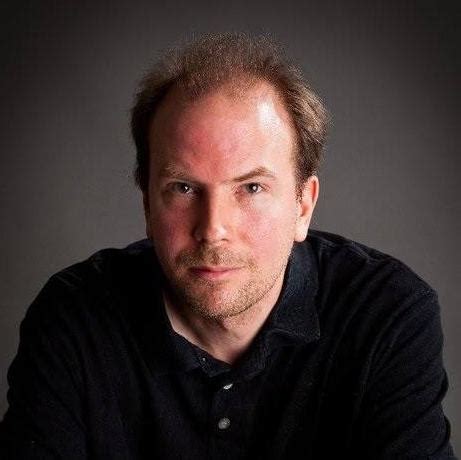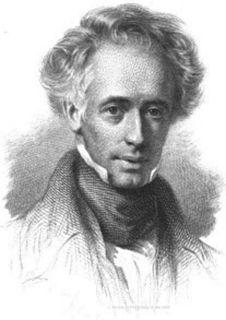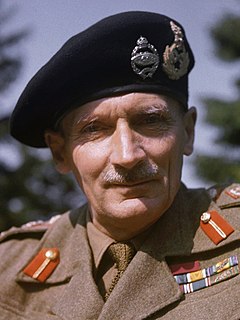A Quote by John Burroughs
Some of the animals outsee man, outsmell him, outhear him, outrun him, outswim him, because their lives depend more upon these special powers than his does; but he can outwit them all because he has the resourcefulness of reason and is at home in many different fields.
Related Quotes
Every work of art reaches man in his inner powers. It reaches him more profoundly and insidiously than any rational proposition, either cogent demonstration or sophistry. For it strikes him with two terrible weapons, Intuition and Beauty, and at the single root in him of all his energies... Art and Poetry awaken the dreams of man, and his longings, and reveal to him some of the abysses he has in himself.
Teach your scholar to observe the phenomena of nature; you will soon rouse his curiosity, but if you would have it grow, do not be in too great a hurry to satisfy this curiosity. Put the problems before him and let him solve them himself. Let him know nothing because you have told him, but because he has learnt it for himself. Let him not be taught science, let him discover it. If ever you substitute authority for reason he will cease to reason; he will be a mere plaything of other people's thoughts.
Some souls think that the Holy Spirit is very far away, far, far, up above. Actually he is, we might say, the divine Person who is most closely present to the creature. He accompanies him everywhere. He penetrates him with himself. He calls him, he protects him. He makes of him his living temple. He defends him. He helps him. He guards him from all his enemies. He is closer to him than his own soul. All the good a soul accomplishes, it carries out under his inspiration, in his light, by his grace and his help.
She couldn't think of anyone else who remotely resembled him. He was complicated, almost contradictory in so many ways, yet simple, a strangely erotic combination. On the surface he was a country boy, home from war, and he probably saw himself in those terms. Yet there was so much more to him. Perhaps it was the poetry that made him different, or perhaps it was the values his father had instilled in him, growing up. Either way, he seemed to savor life more fully than others appeared to, and that was what had first attracted her to him.
You are angry with your neighbor, you despise him, do not like to speak peaceably and lovingly to him, because there is something harsh, abrupt, careless, unpleasant to you in his character, in his speech, in his manners-because he is more conscious of his dignity than perhaps is necessary; or because he may be somewhat proud and disrespectful; but you yourself, your neighbor's physician and teacher, are more guilty than him.
It is God, Who is merciful and grants everyone what he needs, Who is building him up when He gives him more than he needs; in doing so He shows the abundance of His love for men and teaches him to give thanks. When He does not grant him what he needs, He makes him compensate for the thing he needs through the working of the mind and teaches him patience.
Man is an Animal, formidable both from his Passions and his Reason; his Passions often urging him to great Evils, and his Reason furnishing Means to achieve them. To train this Animal, and make him amenable to Order; to inure him to a Sense of Justice and Virtue, to withhold him from ill Courses by Fear, and encourage him in his Duty by Hopes; in short, to fashion and model him for Society, hath been the Aim of civil and religious Institutions; and, in all Times, the Endeavour of good and wise Men. The aptest Method for attaining this End, hath been always judged a proper Education.
When we stand in the light it is not we who illumine the light and cause it to shine but we are illuminated and made shining by the light... God grants his blessings on those who serve him because they are serving him and on those who follow him because they are following him, but he receives no blessing from them because he is perfect and without need
Christianity set itself the goal of fulfilling man’s unattainable desires, but for that very reason ignored his attainable desires. By promising man eternal life, it deprived him of temporal life, by teaching him to trust in God’s help it took away his trust in his own powers; by giving him faith in a better life in heaven, it destroyed his faith in a better life on earth and his striving to attain such a life. Christianity gave man what his imagination desires, but for that very reason failed to give him what he really and truly desires.
While some animals exhibit individual powers in higher perfection, man stands for their superior, not only in combining in his own body all the senses and faculties which they possess, but in being endowed with moral and intellectual powers which are denied to them, and which at once place him at the head of the living creation, and constitute him a moral, religious, intelligent, and responsible being.
Why does soldiers leave the protection of his trench hole in the ground and go forward in the face of shot and shell? It is because of the leader who is in front of him and his comrades who are around him. Comradeship makes a man feel warm and courageous when all his instincts tend to make him cold and afraid.
The godly man contrarily is afraid of nothing; not of God, because he knows Him his best friend, and will not hurt him; not of Satan, because he cannot hurt him; not of afflictions, because he knows they come from a loving God, and end in his good; not of the creatures, since "the very stones in the field are in league with Him;" not of himself, since his conscience is at peace.
What is natural in me, is natural in many other men, I infer, and so I am not afraid to write that I never had loved Steerforth better than when the ties that bound me to him were broken. In the keen distress of the discovery of his unworthiness, I thought more of all that was brilliant in him, I softened more towards all that was good in him, I did more justice to the qualities that might have made him a man of a noble nature and a great name, than ever I had done in the height of my devotion to him.



































